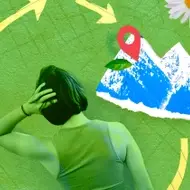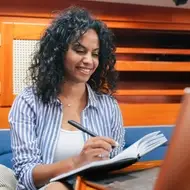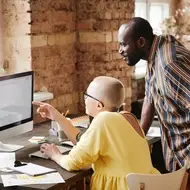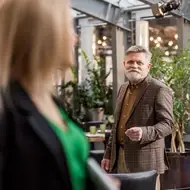Volunteering with Mutual Aid Networks
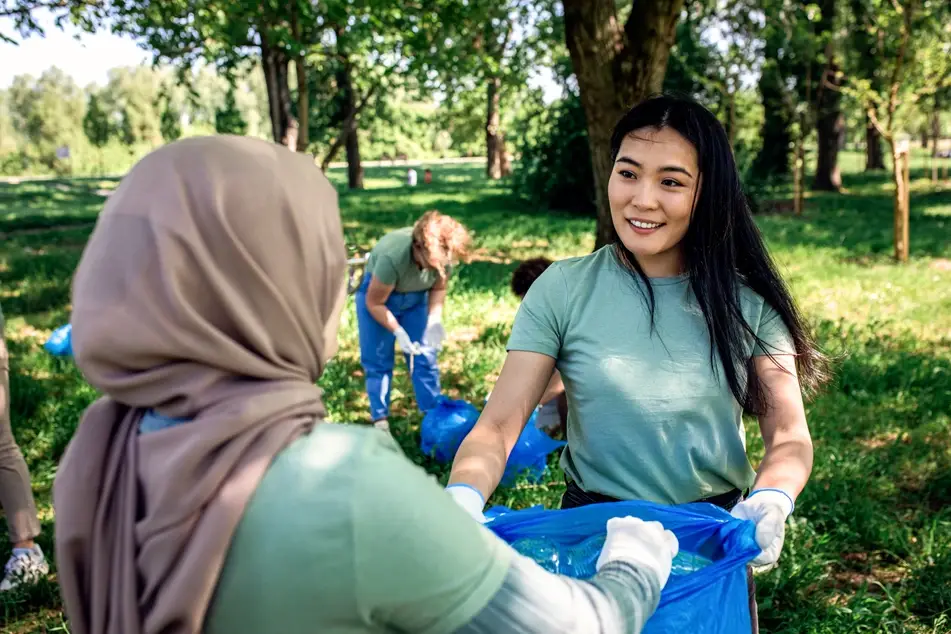
While the current situation means that we can’t gather and connect with our community in the way we’d like to, there are other ways to take action. And in fact, communities around the world have recently started uniting through mutual aid networks.
Mutual aid networks are local, volunteer-run collectives of neighbors helping neighbors in any way they can. In response to the COVID-19 crisis, more mutual aid networks have taken root all over the world, facilitating things like delivery of goods, grocery runs, prescription refills, and even friendly check-ins with neighbors. The action is based on the simple premise that we should all help others, in a spirit of solidarity rather than charity, because we’re in this together.
In March 2020, in an effort to do something productive while social distancing and staying home, Maryam Shariat Mudrick and her family started posting flyers around Astoria, Queens, in New York City. “New Yorkers look out for each other,” the flyer said. “While we all deal with the uncertainty of COVID-19, your neighbors are here to help.”
The flyer included a phone number and a call-to-action for those interested in volunteering to reach out. Maryam and her husband started fielding calls almost immediately. “The community response has been overwhelming,” Maryam says. “We now have 475 volunteers, and counting.” Less than two weeks later, the Mudricks issued a press release officially announcing the Astoria Mutual Aid Network, stating, “we are members of the Astoria community who believe that our community is stronger when we take care of each other.”
How Astoria Mutual Aid works
The Astoria Mutual Aid Network communicates primarily via WhatsApp and a Slack channel, with volunteers reaching out to offer their services—from filling prescriptions to delivering groceries to checking in on immunocompromised and elderly neighbors. Others take to the group to ask for help, sometimes requesting spare face masks or groceries for immunocompromised neighbors. Regardless of the need or the offer, willing volunteers chime in at all hours of the day.
“It is wildly heartening,” Maryam says of the community’s eagerness to volunteer. As co-founders of the group, Maryam and her husband Ross are learning as they go. “I have zero experience in organizing,” she says, “so [there] is a major learning curve for me.” Luckily, Maryam isn’t alone in her efforts. Since its inception, the Astoria Mutual Aid Network has been supported by a core of volunteers who handle outreach, communication, and the technological needs of the group as the number of volunteers continues to grow.
The benefits of mutual aid groups
Astoria Mutual Aid has already unified and engaged its community in powerful ways. Neighbors who hadn’t really engaged with one another before are now relying on each other for deliveries, supplies, and moral support. Phone trees to check in on the elderly and immunocompromised now exist in multiple languages to cover Astoria’s diverse population. And the group is always buzzing with ideas, links, and calls to action. “So many people are stepping up to do whatever they can to take care of our vulnerable neighbors,” Maryam says.
One such neighbor, a registered nurse and her husband, have both tested positive for COVID-19 and are unable to offer their 11-year old daughter much in the way of comfort at the moment. “The mom called us because [her] daughter was really craving some creature comforts—ice cream and Capri Sun,” Maryam says. “One of our volunteers was able to run right out and do a contactless delivery so that young girl, who is going through such a difficult experience, could have something to make her feel safe and happy and comfortable.”
And the recipients of all of these amazing services and supports aren’t the only ones benefiting from the mutual aid network. For the volunteers, taking action is making this period of separation and isolation easier to manage. “We've heard from volunteers that participating in mutual aid is a wonderful way for them to channel their anxieties,” Maryam says. “And we've also heard from members of the community...how grateful they are to have this level of community support during a really scary and unsettling time.”
As essential workers continue to do their part on the frontlines of the COVID-19 pandemic, groups like the Astoria Mutual Aid Network are serving another important function: keeping us connected and making sure all needs—and neighbors—are covered in their communities.
Angel uses his skills as a storyteller to support and inspire job seekers and aspiring social-impact professionals.



